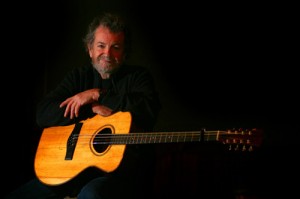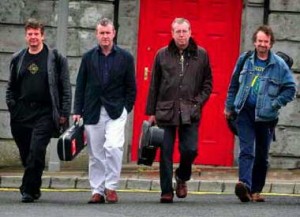For 45 years, Andy Irvine has been entrancing audiences with his superb voice and deep musicality.
Irvine has managed to take traditional music and turn it into something uniquely his own, while still paying homage to the art form’s origins. He has been in on the ground floor of some memorable ensembles, including Sweeney’s Men, Planxty, Patrick Street and the sensational Andy Irvine & Dónal Lunny’s Mozaik.
There are still some tickets left to hear him in an intimate house concert October 18 in Center City Philadelphia. If you’re interested, e-mail the Barn Star Concert Series at barnstarconcerts@gmail.com.
As a tune-up to the concert, we asked him five questions about his career, his take on the evolution of Irish music … and what he’d love to try next.
Q. What do you think about the evolution in traditional Irish music? You can still find many, many musicians and bands who hold fast to tradition. You get the sense that, whatever tune the flute player is playing in the session down at the pub, it might not be all that different from how the tune was played in the 18th century. But clearly, for some time there have been non-traditional instruments in the mix—I’ve heard trombones—and many ways to express the music that obviously owe a large debt to tradition, but then go off in some completely new and different direction.
A. Well… I guess I’m someone who went “off in a completely new and different direction!” When I started accompanying Irish Traditional song on bouzouki & mandola, the road ahead was pretty open. My feelings, generally, are that immersion in the tradition should lead to playing with good taste. If you trust your sense of taste, you will satisfy yourself—which is the primary aim—and hopefully others as well.
Crossing “Reuben’s Train” with Romanian riffs underlined for me that people’s music, in Europe anyway, all comes from the same wellhead.
Q. Some people reject that kind of cultural cross-pollination: “An Irish band shouldn’t play a Bruce Springsteen song.” You obviously have an appreciation of other genres. Certainly no one can question your Irish music credentials–you’ve been called a “legend”—and yet right from the start you’ve been experimental. Do you regard yourself simply as a musician, and to heck with the labels? Is music just music for you in the end?
A. I have always enjoyed attempting cross pollination—or cross-pollution, as Donal Lunny called the music of Mozaik! Mozaik was my favourite band ever. Crossing “Reuben’s Train” with Romanian riffs underlined for me that people’s music, in Europe anyway, all comes from the same wellhead.
Q. I’ve chatted with other musicians—Eileen Ivers comes to mind—who insist they’d be bored if they always and only played the music the way Michael Coleman played it. Does that describe you? Would you be bored if you always played and sang the same things?
A. I’d be pretty sure that Eileen didn’t phrase it quite like that! (Editor’s note: she didn’t.) There was only one Michael Coleman! On a long tour sometimes a song becomes a chore but after a day off it comes back renewed. Having said that, it’s always a great feeling when you introduce something new.
Q. Can you go too far? Can you tinker too much with traditional Irish music? Have you heard tunes or bands and thought to yourself: That was a bit much? (I’m not asking you to name names.)
A. Yes, I have. Quite often. There’s an awful lot of dreadful music available…!
Q. What haven’t you tried yet musically that you’re still dying to to try?
A. I’d like to get Mozaik back together again. A new album would be a serious challenge! Bruce Molsky is rarely available and I took the step a few months ago of asking Annbjørg Lien if she would play with us when Bruce wasn’t available. Both were receptive to the idea but nothing has happened yet. There are so many musicians I’d like to have in that band! Jackie Molard, Theodosii Spassov, George Galliatsos from Apodomi Compania to name but three.


